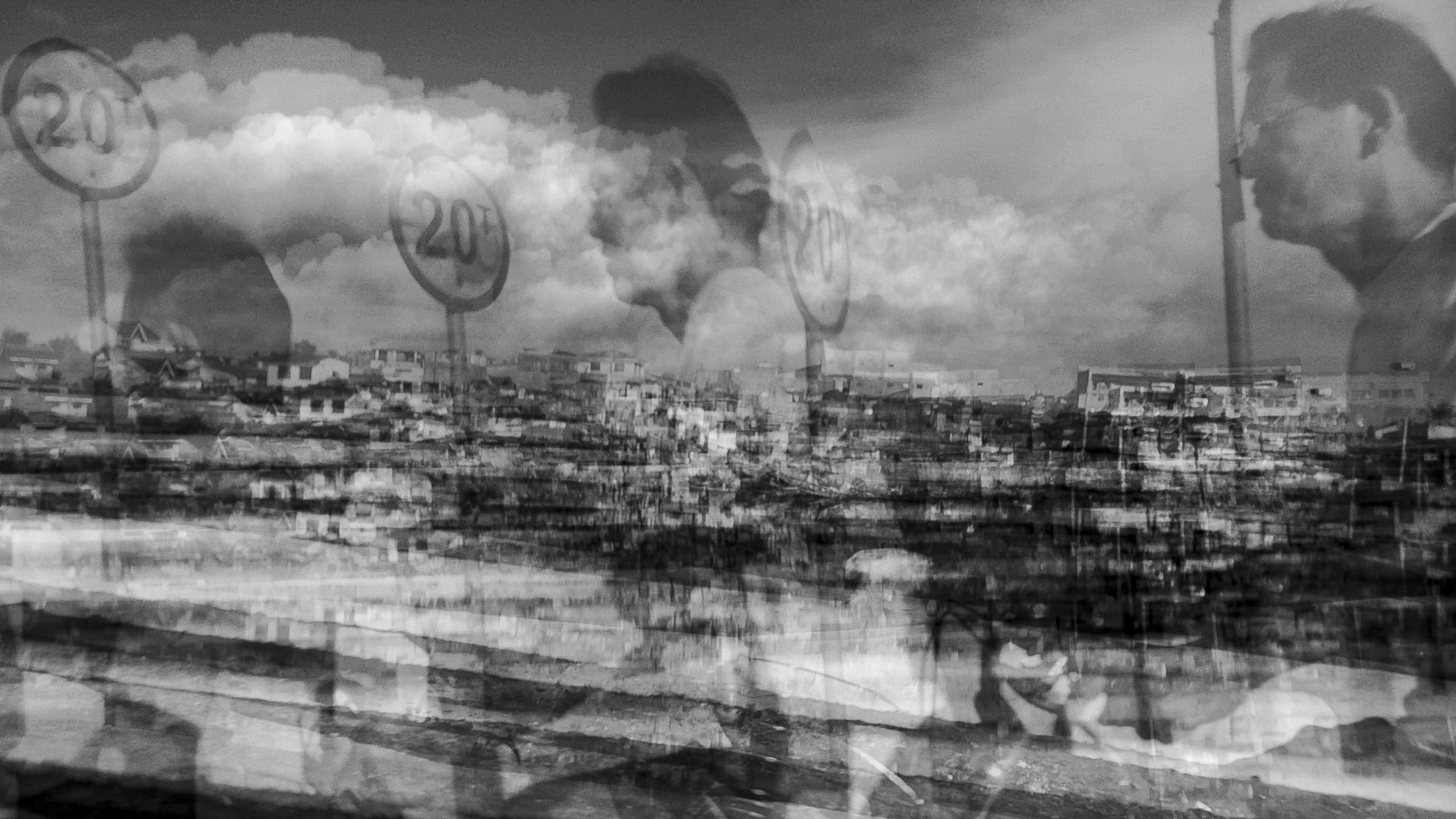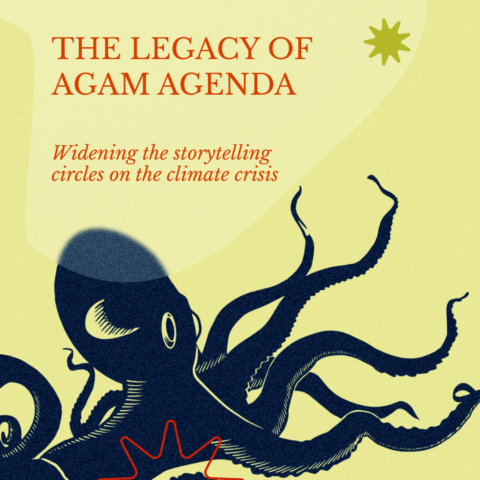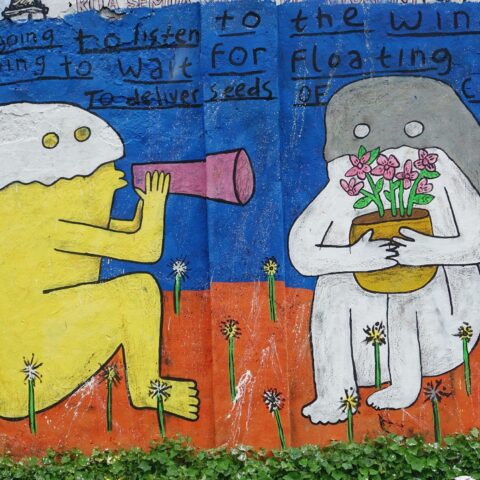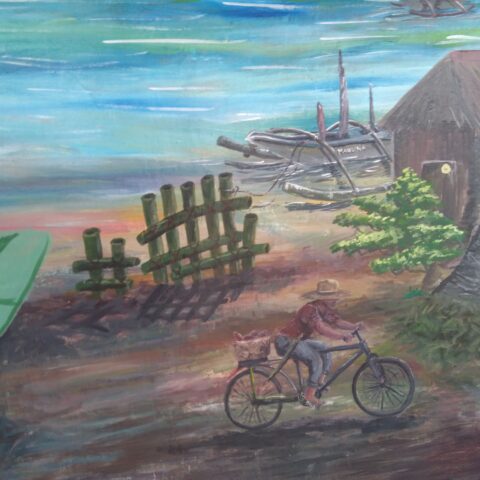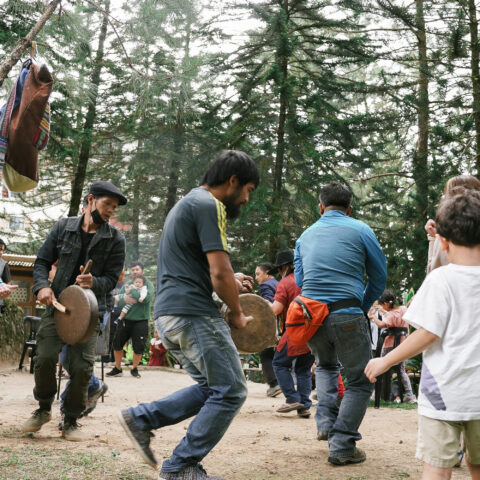By Renato Redentor Constantino
Slightly adjusted remarks delivered to launch the international literary anthology, Harvest Moon: Poems and Stories from the Edge of the Climate Crisis, December 17, 2021. Harvest Moon is the sequel to what might be the world’s first literary anthology on the climate crisis, Agam: Filipino Narratives on Climate Change and Uncertainty, which received three National Book Awards, composed of 24 narratives in verse and prose written in eight Filipino languages.
Watch the recording of the HARVEST MOON Creators’ Launch here.
Photo credit: Veejay Villafranca as featured in Harvest Moon.
Good morning, good afternoon, good evening.
I extend a profound embrace to everyone who found time to join this event. We are all going through different difficulties at the moment, so I thought, before I thank anyone, I must first attempt to frame our collective effort. Instead of the urgency of science, politics, or poetics, I offer only what is deeply personal, given the deeply personal struggle many of us have been in for some time.
I believe in many things. But what feels elevated to me at this moment is something singular: we are driven by a sense of purpose many can relate to but which few can fathom. I believe the only mystery truly worthy of faith is the elusive answer to the simplest, yet most profound question most people today seem to no longer bother to ask themselves:
How is it possible that one can love a boy, or a girl, a companion, a patch of land or a fabric of sky, or a vision of a far future many are trying to live today, so deeply and with so much of one’s being that every waking minute of a day, anywhere one looks or listens, everything that one smells or tastes or feels or hears or sees is a reminder of the things that give us gravity, buoyancy, and meaning?
It should not be possible, but it is. And we are all the richer each it remains a mystery, even if it undergoes a hundred thousand distillations daily, because it is ultimately an unanswerable question we will continue to pursue but never reach.
And yet it is the reason we act.
It is the reason we write.
It is the reason why we capture images.
Harvest Moon is an anthology of loves and lives, of stories that thrive where borders and edges meet and where fates merge and collide like bodies of water seeking oceans and tides encountering clouds and landfall, habitats and hives.
I would also like to think both question and elusive answer are the reason why many of us in this event, whenever faced with colossal odds completely stacked against us, will never ever hesitate to embrace the intangible over the pragmatic compromise—even if we face the protracted pits of starless nights and isolation—because we know, somehow, against all logic, that life will remain ultimately unruly and subversive and thus beautiful.
Humanity’s certainties—defined largely by wealthy white men—are the reason why we are today in this deep and frightening mess called the climate crisis. And yet we rise. And yet we rise. We even get to make a book. Together. For as we confront the cumulative depravities of ignorance, misogyny, and avarice, we also get to retain and nourish the ability to hope. We hope and remind ourselves that the injustices that take our breath away also gives us oxygen, just as blazing sunsets across our crisis-plagued world pierces our senses when given overcast skies. We hope. We hope. We write, we capture images, we paint, draw, march and shout and fight. We act, in other words, and thus we hope.
To do so is a reminder to ourselves that it is an act of love. Because love is rescue and refuge. Love is longing and pain. Love generates great and searing anger. Love calms strong storms. It is love that gives laughter the gift of flight. Yet love is also a spectacularly frightening thing because it defines absence or presence in ways completely outside our control.
Love is atmospheric heights, and love is roots sunk deep. Love is what has helped all of you produce hope, and THIS book, and the possibility of a gentler, happier, safer future.
Around a month ago, leaders from what today counts as 55 governments representing 1.4 billion people in the world agreed to advance a cultural campaign capable of harnessing the humanities in order to fully integrate climate science into policymaking while exhorting the public to get more involved. Our event today is one among many triggers.
We are aimed at several launches in 2022 and the year after because for sure we intend to be part of the Ubud Writers Festival when Indonesia takes on the G20 Presidency next year.
And without a doubt, if we succeed, we might also be part of the 2023 Jaipur Literary Festival on the year India assumes the G20 presidency. And of course, it need not be said, looming even larger are the events we must and will pin down for Africa and Latin America.
Our convictions, colleagues, propel us to this arena. What began as an idea in 2012 produced a pioneering book in 2014, and today we have a sequel that is composed of YOUR constellations.
Here, in the book we launch today, we again marshal words against the machinery of indifference, violence, greed, and war, which has brought the world we know on the brink of collapse. And we know our work will matter. We are unruly spores out to conquer the world with anger, joy, sharp strategies, and love.
Will we prevail? In all mighty struggles, there are never any guarantees. Isn’t that the reason why such struggles are called mighty?
Through her novel The Left Hand of Darkness, the writer Ursula K. Le Guin tells us again, in case we’ve forgotten, what we all need to dwell on today:
Our imagination makes us human, and it makes us fools; it gives us all the world and exiles us from it.
Because the truth is, said Le Guin, “The only thing that makes life possible is permanent, intolerable uncertainty: not knowing what comes next.” It is uncertainty we must embrace. Because it means the bad guys have not won yet, and we still have a world—we still have many worlds—to win.
We will resist. We must resist. And we will win. But first, we must write. First, we must tell our stories.
***
My friends, the honor falls on me to thank all the contributors who made this night possible.
To all the writers who shared their compelling, haunting, inspiring words – thank you for the wings.
To all the photographers who gave their sense of imagery to provoke and call forth narratives readers will soon encounter – thank you for the winds.
To all colleagues at the Institute for Climate and Sustainable Cities and our many partners in the campaigning world and the academe who, having moved so many pebbles, have ensured the editors were able to move mountains.
To the gorgeous minds who continue to run the global climate poetry rebellion embodied in the When Is Now campaign, such as Maria Faciolince, Carissa Pobre, and Anna Denardin, who have steadily introduced elements of the book we are launching today, particularly in bus stops and billboards in Glasgow at COP26, as they prepare to conquer 2022.
To Felix Mago Miguel, our book designer, for providing the extraordinary and, just as important, restrained sense of aesthetic that has done justice to all the contributions.
To brothers Tom Kruse and Ramon C. Sunico, who both not only believed but also plucked so many stars from the firmaments they’ve generously shared to this enterprise.
To the fierce and fabulous Rebecca Solnit, cartographer of dispossession and disobedience, for providing the book’s Afterword. She might no longer remember being asked in 2015 in Paris—and that she said yes six years ago almost to this day—but Rebecca always keeps her word, because she keeps the best words, the words that matter.
To the mothers of this book, Rehana Roussow, Alexandra Walter, and my beautiful sister, the lead editor Padmapani Perez, for giving birth to this book.
As the great writer Eduardo Galeano once reminded us, our task as individuals is to constantly find ways to justify the existence of our tiny blip in the universe.
Today we welcome the product of our collective enterprise, which now bears not only the title of Harvest Moon: Poems and Stories from the Edge of the Climate Crisis, but also the physical structure of a book, which we hope can stand as a platform to the campaigns for accelerated change we need today. Harvest Moon is an anthology of loves and lives, of stories that thrive where borders and edges meet and where fates merge and collide like bodies of water seeking oceans and tides encountering clouds and landfall, habitats and hives. The anthology is composed of over 30 images and more than 30 poems, stories, and essays about the climate crisis from writers, photographers, and artists in Africa, Asia, the Pacific, and Latin America, spanning 24 countries and 11 languages.
It’s time we wrest power from the tiny few intent on causing us harm today if only to secure their narrow interests in the long run. We need the public to convince our governments to serve the interests of the intergenerational majority, to acquire more courage and to once and for all discard the hesitation advanced by the powerful and ignorant minority—willing tools each one paid and purchased by fossil capital and the dictatorship of accumulation and consumption.
We will resist. We must resist. And we will win. But first, we must write. First, we must tell our stories. First, we must encourage others to tell their stories. And yes, before we write, first, we must read, we must sing, and we must live.
Thank you everyone, and congratulations again to all of you.
